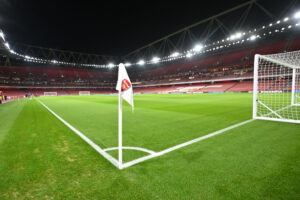Paul Clement, the new Swansea manager, is clearly a believer in what is perhaps the oldest of all adages: “If at first, you don’t succeed, try, try again”. Having been sacked as Derby chief last season, which was his first managerial position after stellar success as a No.2 to Carlo Ancelotti, Clement has left his position as Ancelotti’s assistant at Bayern Munich to have another crack at being a manager.
However, while his ambition is admirable, it remains to be seen whether this most accomplished of coaches can finally cut it as a boss. The Swansea job could be make or break for Clement as a manager. If he fails in Wales, it is hard to see him getting another chance at a top managerial position.
There are major questions to be asked about Clement as he becomes the new boss at the Liberty Stadium, his first Premier League match at home to Arsenal ending in a 4-0 defeat. The first and most important is his lack of managerial experience. Having been Carlo Ancelotti’s consigliere for so many years, first at Chelsea and then subsequently at Paris Saint-Germain, Real Madrid and (briefly) Bayern, he has undoubtedly been a successful coach or even assistant manager.
It is equally undoubted, however, that there is a world of difference between being the assistant and being the main man. Indeed, it is perhaps the hardest transition to make in football, as you go from being essentially an adviser or right-hand man to having to make all the decisions yourself.
The one and only time so far that Clement was the main man, at Derby last season, it did not work out well. He was in the post for only eight months and they were a very mixed eight months at that: a tricky start; then a long unbeaten run; and finally a run of seven league games without a win that led to the Derby Chairman, Mel Morris, firing him, claiming that the team “had not made enough progress”.
Now, it must be borne in mind that Morris has perhaps proved himself to be among the trickier of chairmen for managers to deal with, having lost his next full-time manager, Nigel Pearson, allegedly after the two men had experienced a “heated exchange”. Nevertheless, even Clement himself could not argue that his time at Derby had been a success. So, for the time being at least, he remains unproven as a manager.
The second major question mark about Clement’s appointment is whether he has sufficient, or indeed any, experience of saving a team from the drop, which is very different from trying to win things. He may have won league titles in England and France alongside Ancelotti, and even conquered Europe with Real Madrid, but that does not prepare him for a relegation battle, which is exactly what Swansea are in.
After six largely successful seasons in the Premier League (including a League Cup win in 2013, their first major trophy), Swansea have slumped this season, to the point that they are now many people’s favourites to go down.
The third and final major question to be asked of Clement whether he is the right fit for the club, given the perilous position they are in. In their time in the Premier League, Swansea have distinguished themselves, under several different managers, as perhaps the finest footballing side outside the top six, regularly playing attractive, passing football that has led to a succession of famous wins over the elite, including several over Arsenal and Manchester United.
However, that stylish play was largely founded on the utterly uncompromising defensive work of their captain and talisman, Ashley Williams, who departed the Liberty Stadium last summer for Everton.
While in one sense a £10 million-plus fee for a player in his early thirties was good business, in another sense it was absolute madness, given that Williams was not only the captain of Swansea but effectively their manager on the pitch. He is exactly the kind of captain and centre-back that so many people claim are no longer in the game and even if he is now probably past his best as a player, his leadership and organisational skills have been an enormous loss for Swansea.
Frankly, he is exactly the kind of player that Clement will be scouring the transfer market for in January. Without him, for all Swansea’s pretty passing, which will surely be further enhanced by Clement’s coaching skills and emphasis on attacking play, the team will struggle to keep clean sheets.
For all these question marks against him, Clement has one overwhelming positive, and that is his relative failure as a player, which led him into coaching at an extremely early age and is surely the source of inspiration for his attempts to succeed as a manager. Although his father and brother both had successful careers, Clement himself did not make it beyond non-league football.
As a result, he combined working as a PE teacher with football coaching from his early twenties, finally flowering when Ancelotti arrived at Chelsea and took him from coaching the youths and reserves to make him his assistant manager in Chelsea’s double-winning season of 2009-10. The Italian was obviously so impressed by his new No.2 that he has largely kept Clement alongside him ever since.
Ancelotti is one of the rare managers who was a great player and a great manager. Most successful managers either failed as players, as was the case with Clement but also with Arsène Wenger and José Mourinho, or had their careers curtailed by injury, as is true of many great managers, from perhaps the greatest of all – Brian Clough – to a modern-day rising star, Eddie Howe.
More than 10 years ago, when Graham Rix, who had been imprisoned in 1999 for unlawful sex with a 15-year-old girl and indecent assault, was appoint as the new manager of Hearts, owner Vladimir Romanov justified his decision by saying: “In Russia, we have a saying that a man that’s beaten by life is worth two that are unbeaten, which means that someone who has made a mistake is capable of becoming a better man.”
That saying might almost be a mantra for managers, most of whom may not have sunk to the depths that Rix experienced but have nevertheless experienced difficulties in their playing career that ultimately provided them with the drive to become a boss.
That is perhaps the biggest source of hope for both Clement himself and the Swansea fans, many of whom have expressed reservations about his appointment. Having failed to make it as a player but then succeeded spectacularly as a coach or assistant manager, the jury remains out on Clement the manager. But if he can show the same kind of resourcefulness and sheer determination that he has already shown in his career, rising from being a PE teacher to winning ‘La Decima’ alongside Ancelotti at Real Madrid, he has a fighting chance of success.
Main Photo






